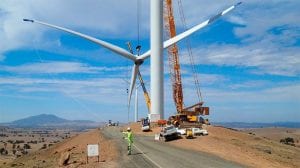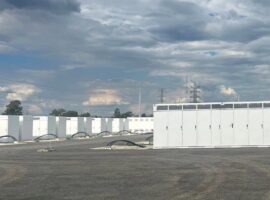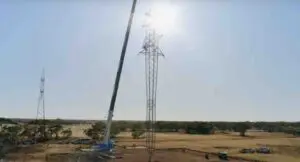One of the world’s biggest solar PV manufacturers, Yingli Green Energy, has announced it will set up its regional headquarters in Sydney after concluding that Australia represents one of the most promising solar PV markets in the world.
The Chinese based, US-listed Yingli, one of the big three solar manufacturers, and No 1 in the world in 2012 according to some surveys, has had only a minimal presence in Australia to date and has sold just 5MW of panels into a market that has now installed more than 1,500MW.
However, the company says Australia is set to be a “world leader” in coming years – the result of rising retail electricity prices, falling PV costs, new financing options and a lot of sun. And as some of its principal partners move into the country, it has chosen to do so too.
“Australia is one of the most promising markets in the solar industry,” Liansheng Miao, Yingli’s chairman and CEO, said in a statement.
Lucas Sadler, the newly appointed head of Yingli Australia, said Australia could be the first major market in the world to reach mass grid parity – where solar PV installations are cheaper than grid-connected electricity supplies, and are available widely because of innovating financing such as solar leasing.
“If you look out to 2014/15 – the prospects are quite extraordinary, and Australia could lead the world,” Sadler told RenewEconomy in an interview. He cited the advancement of micro investors, the introduction of “plug and play’ kits, and affordability in the mass market, as well as excellent options in the off-grid scale market. “Some researchers say Australia may be the first to reach grid parity on a mass scale. Over the next three to five years, it’s going to be one of the most active markets in the world.”
Sadler said Yingli saw growth in the residential market, and in commercial and larger scale projects. Commercial-scale systems of the 10kW to 30kW range was of particular interest to business customers struggling under the weight of rising electricity costs.. “We are moving into the second phase where merits of having a solar system are quite strong – customers will recognize the return on investment because electricity prices are so high.”
Sadler, a former executive with utility TRUenergy who has worked with retailers and in the telecommunications business, said he expected solar PV to become an attractive power hedge to consumers, and even to emerge as a “fast-moving consumer good” – in the same way as solar hot water systems, or even flat screen TVs. “I think you will see people make decisions like buying a solar PV systems instead of a flat screen TV – it’s a sensible move to take a power hedge for the next 25 years.”
Yingli will also use its new Australian branch to distribute Yingli Solar panels to the New Zealand and the Pacific Islands region.








